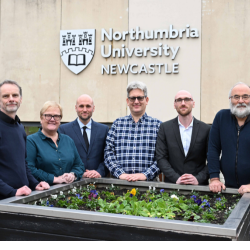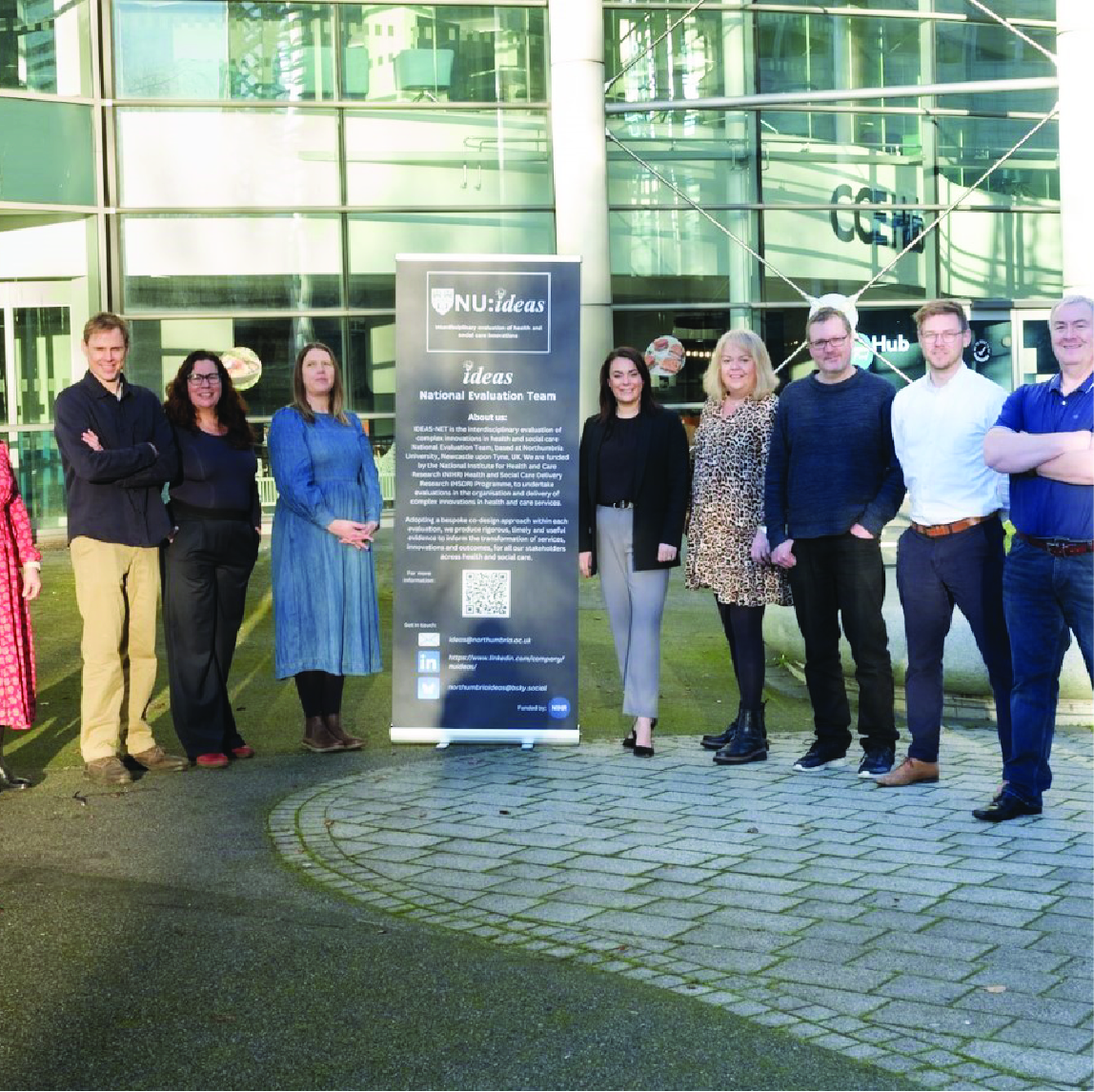-
Study
-
Quick Links
- Course Search
- Unlock Your Potential
- Still time to Apply
- Higher and Degree Apprenticeships
- Continuing Professional Development
- Still time to apply
-
Undergraduate
- Course Search
- Application Guides
- UCAS Exhibitions
- Foundation Years
- Fees and Funding
- School & College Outreach
- Information for Parents
-
Postgraduate
- Course Search
- Application Guide
- Postgraduate Research Degrees
- Flexible Learning
- Fees and Funding
- Change Direction
- Register your Interest
-
Student Life
- Students' Union
- The Hub - Student Blog
- Accommodation
- Northumbria Sport
- Support for Students
-
Experience Northumbria
- Open Days & Events
- Virtual Tours
- Campus Tours
- Life in Newcastle
-
-
International
International
Northumbria’s global footprint touches every continent across the world, through our global partnerships across 17 institutions in 10 countries, to our 277,000 strong alumni community and 150 recruitment partners – we prepare our students for the challenges of tomorrow. Discover more about how to join Northumbria’s global family or our partnerships.
View our Global Footprint-
Quick Links
- Course Search
- Undergraduate Study
- Postgraduate Study
- Information for Parents
- London Campus
- Northumbria Pathway
- Sign up for Information
-
International Students
- Information for Students
- International Events
- Application Guide
- Entry Requirements and Education Country Agents
- Global Offices
- English Requirements
- English Language Centre
- International student support
-
International Fees and Funding
- International Undergraduate Fees
- International Undergraduate Funding
- International Masters Fees
- International Masters Funding
- International Postgraduate Research Fees
- International Postgraduate Research Funding
-
International Partners
- Agent and Representative Network
- Global Partnerships
- Global Community
-
International Mobility
- Information for Northumbria Students
- Information for Incoming Exchange Students
-
-
Business
Business
The world is changing faster than ever before. The future is there to be won by organisations who find ways to turn today's possibilities into tomorrows competitive edge. In a connected world, collaboration can be the key to success.
More on our Business Services -
Research
Research
Northumbria is a research-rich, business-focused, professional university with a global reputation for academic quality. We conduct ground-breaking research that is responsive to the science & technology, health & well being, economic and social and arts & cultural needs for the communities
Discover more about our Research -
About Us
-
About Northumbria
- Our Strategy
- Our Staff
- Place and Partnerships
- Leadership & Governance
- Academic Departments
- University Services
- History of Northumbria
- Contact us
- Online Shop
-
-
Alumni
Alumni
Northumbria University is renowned for the calibre of its business-ready graduates. Our alumni network has over 246,000 graduates based in 178 countries worldwide in a range of sectors, our alumni are making a real impact on the world.
Our Alumni - Work For Us
What will I learn on this module?
You will study the hydraulics of open channel flow, pipelines and pumps, as well as focusing on engineering hydrology, where you will study water supply and catchment hydrology.
How will I learn on this module?
The module will include a range of learning materials such as presentations, notes, workshop questions for you to answer, and other resources such as video links, spreadsheets and specific software-related files. All these resources will be arranged in a convenient learning journey, giving you a clear expectation of the material to be studied and tasks to be completed on a week-by-week basis. You will be expected to complete the appropriate tasks in your weekly journey before attending programmed sessions. You will take part in lectures to develop your knowledge and understanding of the module material and in workshops, where you will learn to apply the concepts learned to engineering problems. You will participate in practical classes to further cement your learning of theoretical principles and to research relevant physical phenomena. You will attend IT workshops where you will have the opportunity to apply computer modelling solutions to problems. There may be occasions within the semester where normal teaching will be suspended to allow your learning to be supplemented by a range of activities such as design workshops, guest presentations, professional body events, site visits and field work.
How will I be supported academically on this module?
Support will include feedback from tutors during workshops, lectures, and practical sessions to clarify and deepen your understanding of the module material. In addition, tutors will use the University’s Virtual Learning Environment (VLE) to provide electronic versions of module material. The University’s VLE offers remote access to materials and aids for reinforcing your learning. All of these support mechanisms and learning and teaching approaches will help to you to prepare for the assessments and prepare you for further learning in the programme.
The module and the wider programme teams will provide a supportive approach, enabling you to quickly and easily access and speak to any member of the programme team, as required.The University Library and other student services also offer a variety of academic skills training both online and face to face, which you can access as needed.
What will I be expected to read on this module?
All modules at Northumbria include a range of reading materials that students are expected to engage with. Online reading lists (provided after enrolment) give you access to your reading material for your modules. The Library works in partnership with your module tutors to ensure you have access to the material that you need.
What will I be expected to achieve?
Knowledge & Understanding:
1. Demonstrate knowledge and understanding of open channel flow and the concepts of uniform and critical flow and the analysis of flow conditions.
2. Discuss the hydrological cycle, its associated processes and the collection of hydrological data.
3. Demonstrate knowledge of the sustainability issues associated with flooding while also being able to use hydrological data to identify flood risk and demonstrate the application of hydraulic and hydrological routing methods.
Intellectual / Professional skills & abilities:
4. Demonstrate knowledge and application of the appropriate analysis/experimental techniques to assess and design simple hydraulic systems
How will I be assessed?
Formative Assessments
You will be formatively assessed on all learning outcomes throughout the module, with informal assessment and review practices integrated into the structured workshop programmein order to assist your development and preparation for summative assessment. Feedback and guidance will be provided by academic staff during the workshop sessions.
Summative Assessment
You will be summatively assessed by Coursework and Examination.
Coursework: The coursework will consist of a report of up to 2500 words equivalent, covering MLO 4 and will be worth 30% of the module marks.
You will receive individual feedback with marks and comments for this assignment. Your feedback will give generic consideration of your work, highlighting those areas that you completed successfully and those not so successfully. The intention will be to inform your future coursework and to clarify points of learning that have not been fully assimilated
Examination: The examination will assess your ability to satisfy MLOs 1, 2 and 3. It will be of 2.5 hours duration and be worth 70% of the module marks. Feedback on this will feed into future assessments as well as supporting your future learning.
Pre-requisite(s)
N/A
Co-requisite(s)
N/A
Module abstract
Civil engineering hydraulics includes the engineering of pipe systems such as water supply and drainage and of open channel flows such as rivers and irrigation channels, all of which are vital to human society and the natural environment. Hydrology is the science of water resource management, covering how to predict the amount of water which can be captured and stored for uses, understanding how water moves through the environment, as well as understanding the occurrence and effects of extreme events such as floods and droughts. The module will be based around a simplified design problem, requiring you to study the underlying theoretical principles and then apply them to realistic scenarios. Lectures will highlight the key issues, and work on the design problems will be supported by workshop sessions. The programmed sessions such as laboratory demonstrations and practical classes, will allow you to experience key phenomena at first hand. There may also be the opportunity for field trip/s to further reinforce learning of topics such as the basics of catchment characterization and stream flow measurement. The module will introduce you to much of the work carried out by civil engineers employed in the water industry. Assessment in this module is through a combination of coursework and examination. Supportive individual feedback will be provided for each assessment which will identify areas of merit and offer guidance for future improvement.
Course info
UCAS Code H200
Credits 20
Level of Study Undergraduate
Mode of Study 3 years Full Time or 4 years with a placement (sandwich)/study abroad
Department Mechanical and Construction Engineering
Location City Campus, Northumbria University
City Newcastle
Start September 2025 or September 2026
All information is accurate at the time of sharing.
Full time Courses are primarily delivered via on-campus face to face learning but could include elements of online learning. Most courses run as planned and as promoted on our website and via our marketing materials, but if there are any substantial changes (as determined by the Competition and Markets Authority) to a course or there is the potential that course may be withdrawn, we will notify all affected applicants as soon as possible with advice and guidance regarding their options. It is also important to be aware that optional modules listed on course pages may be subject to change depending on uptake numbers each year.
Contact time is subject to increase or decrease in line with possible restrictions imposed by the government or the University in the interest of maintaining the health and safety and wellbeing of students, staff, and visitors if this is deemed necessary in future.
Useful Links
Find out about our distinctive approach at
www.northumbria.ac.uk/exp
Admissions Terms and Conditions
northumbria.ac.uk/terms
Fees and Funding
northumbria.ac.uk/fees
Admissions Policy
northumbria.ac.uk/adpolicy
Admissions Complaints Policy
northumbria.ac.uk/complaints









